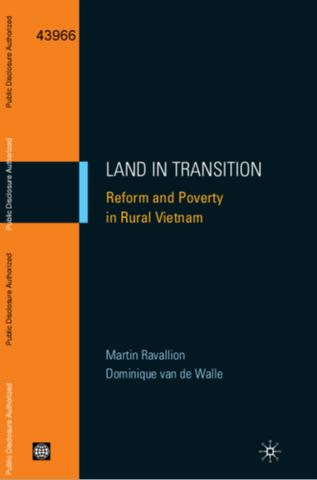Land in Transition : Reform and Poverty in Rural Vietnam
The policy reforms called for in the
transition from a socialist command economy to a developing
market economy bring both opportunities and risks to a
country's citizens. In poor economies, the initial
focus of reform efforts is naturally the rural sector, which
is where one finds the bulk of the population and almost all
the poor. Economic development will typically entail moving
many rural households out of farming into more remunerative


